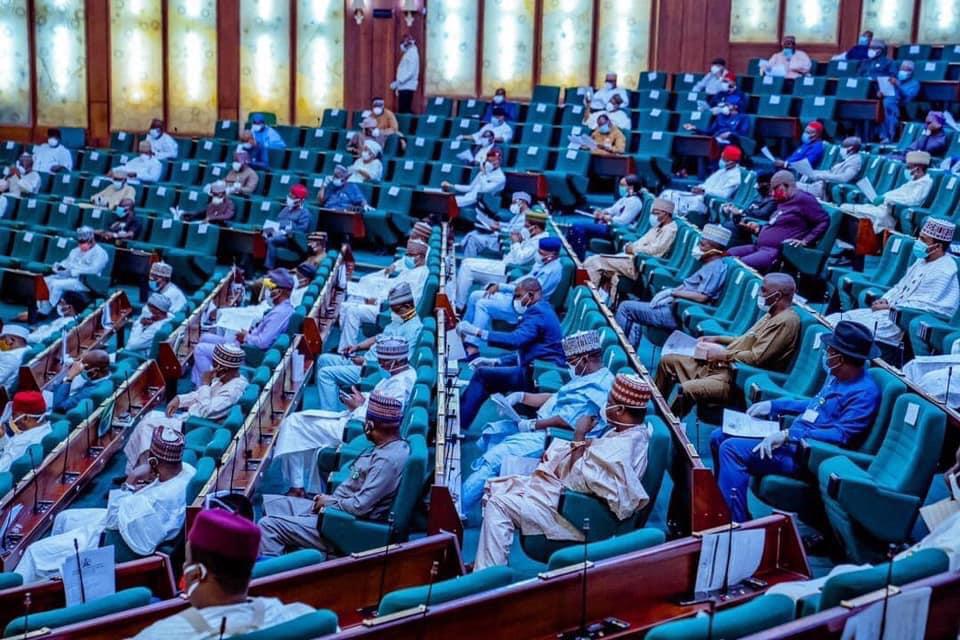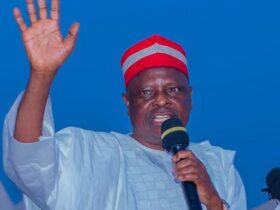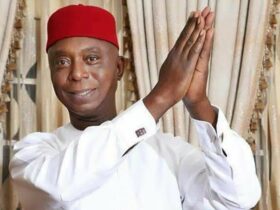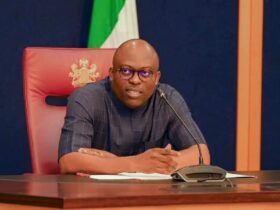
The possibility looms that the North-West, South-West, and South-South geopolitical zones might abstain from presenting a presidential candidate in the forthcoming 2027 general election, should the current efforts to amend pertinent sections of the 1999 Constitution be successful.
Exclusive information obtained by Sunday Punch reveals the existence of a bill titled “For an Act to amend the Constitution of the Federal Republic of Nigeria (as amended) to introduce provisions for the rotation of power among the geo-political zones, senatorial zones, and federal constituencies in presidential, governorship, and senatorial elections in Nigeria.”
This bill is presently under review by the House of Representatives Committee on Constitution Review.
Spearheaded by the representative of Apa/Agatu Federal Constituency, Benue State, Ojema Ojetu, the proposed legislation aims to prevent zones that have previously produced the President of Nigeria since the country’s return to democratic rule in 1999 from fielding candidates.
The bill intends to amend Section 133 of the constitution by incorporating subsections 2, 3, and 4 into the existing laws. According to a copy of the bill obtained exclusively by Sunday PUNCH, subsection 2 stipulates that “The Office of the President of Nigeria shall rotate among the six geo-political zones, with each state holding the office for a maximum of two terms of four years each, to ensure inclusivity, participation, and representation in Nigeria’s democracy.”
Subsection 3 prohibits “Any zone in Nigeria which has previously produced a President of the Federal Republic” from presenting another President until other zones have had their turns, while subsection 4 specifies that “The effective date for the commencement of the rotation of power shall be the 29th of May, 1999, when the Constitution of the Federal Republic of Nigeria (as amended) came into effect.”
Ojotu, a member of the Peoples Democratic Party, asserts that the bill also aims to amend the 1999 Constitution by introducing subsections 6 and 7.
READ ALSO: Tinubu’s Government Lacks Vision, Didn’t Come Prepared—Nimi Wariboko
In (6), the proposed law provides that “The office of the governor of a state in Nigeria shall revolve round all the three senatorial zones in the state, to give every indigene of the state a sense of inclusion, participation and representation in the development of the state; while (7) states that “Every senatorial zone in a state which has produced governor of that state in a democratically conducted election shall not be eligible to produce a governor, unless and until other senatorial zones produce governors of the state.”
Furthermore, Ojotu’s proposed legislation extends beyond that, aiming to amend Section 48 of the Constitution by introducing subsections 1(a) and (b).
1(a) provides that “Senatorial election shall rotate round all the federal constituencies in the Senatorial zone to give a sense of inclusion, participation and representation in the constituencies to engineer social progress and development;” and (b) says that “Every federal constituency in a Senatorial district which has produced a Senator shall not be eligible to produce a Senator, unless and until all other Federal Constituencies produce a Senator.”
Since Nigeria gained independence in 1960, the North Central region has only produced military Heads of State and has never had an elected president.
After the restoration of democracy, Nigerians elected Olusegun Obasanjo from Ogun State in the South-West region as president in 1999. He was re-elected in 2003 and served until May 29, 2007.
Umaru Yar’Adua, from Katsina State, succeeded Obasanjo in 2007 but passed away in office in 2010. Goodluck Jonathan, from the South-South region, then assumed the presidency as Vice President and later won the 2011 presidential election.
Jonathan lost his re-election bid to Muhammadu Buhari, also from Katsina State, in 2015. In 2023, Bola Tinubu from Lagos State in the South-West succeeded Buhari as the incumbent President.
If Ojotu secures the support of his colleagues in Abuja for his proposed legislation, he will also need the backing of state assemblies for the bill to proceed.









Leave a Reply